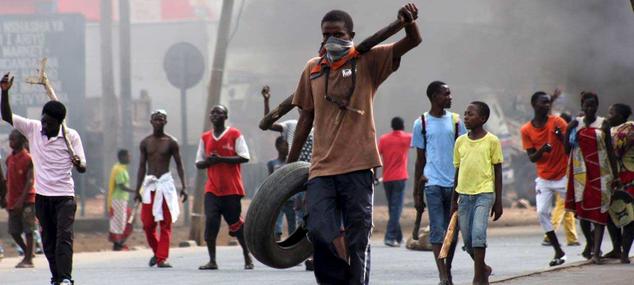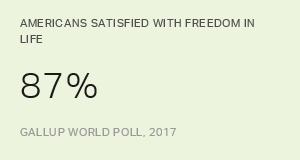Story Highlights
- Ethnic tensions on the rise
- Economic conditions getting worse
- Nearly four in 10 residents considered "suffering"
WASHINGTON, D.C. -- Burundian President Pierre Nkurunziza's controversial decision to seek a third term in office has sparked violent protests in the country that some fear could trigger broader ethnic conflict. Nearly 40,000 Burundians have fled to other countries so far. The percentage of Burundians who say their city or area is not a good place for members of racial or ethnic minority groups tripled from 11% in 2009 to 32% in 2014 -- a troubling increase for a country with a history of large-scale ethnic violence, particularly in the current climate.
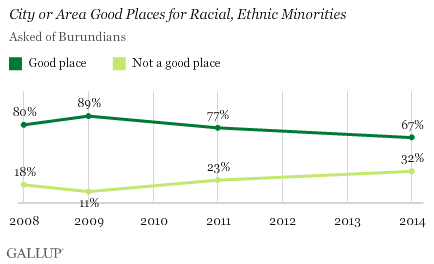
The presidential vote currently scheduled to take place on June 26 comes amid not only rising ethnic tensions, but also worsening economic conditions. At the local level, 72% of Burundians say economic conditions are getting worse, and 10% say it is a good time to find a job in the city or area where they live. These perceptions have worsened considerably since 2009, despite the country's steadily increasing GDP per capita over that timeframe.
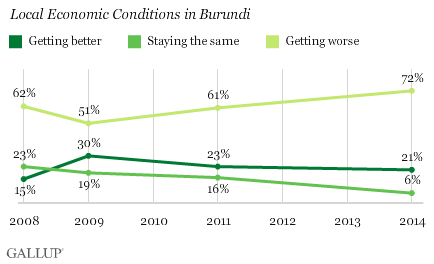
Rising housing costs may be a possible explanation for the disconnect between GDP growth and living conditions -- 60% of those surveyed in 2014 said there were times in the past 12 months when they did not have enough money to provide adequate shelter or housing for their family, a sharp increase from the prior high of 48% in 2011.
Burundi Has One of the Highest Rates of "Suffering" in the World
Illustrating the tough conditions that many Burundians are living under, nearly four in 10 residents rate their lives poorly enough to be considered "suffering." This is easily the highest percentage in sub-Saharan Africa -- and among the 146 countries Gallup surveyed in 2014, Burundi has the third-highest suffering percentage in the world after Afghanistan and Haiti.
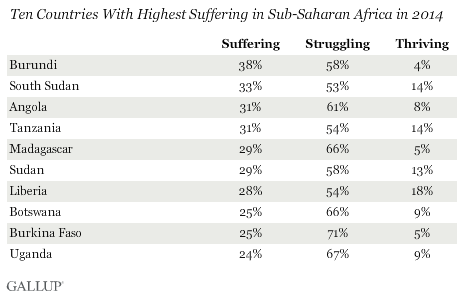
Gallup classifies respondents as "thriving," "struggling" or "suffering" according to how they rate their current and future lives on a ladder scale with steps numbered from 0 to 10 based on the Cantril Self-Anchoring Striving Scale. Gallup considers people to be suffering if they rate their current lives and their lives in five years a 4 or lower, while those who rate their current lives a 7 or higher and their lives in five years an 8 or higher are classified as thriving -- those in between suffering and thriving are classified as struggling.
Implications
Taken together, these results underscore the need for Burundi to resolve its election issues peacefully and for the new government, irrespective of the winner, to address the important economic and human development challenges its residents currently face.
The data in this article are available in Gallup Analytics.
Survey Methods
Results are based on face-to-face interviews with 1,000 adults, aged 15 and older, conducted Oct. 15-25, 2014, in Burundi. Prior survey waves were also conducted through face-to-face interviews with 1,000 adults, aged 15 and older in July 2008, July 2009, and August 2011. For 2014 results based on the total sample of national adults, the margin of sampling error is ±3.6 percentage points at the 95% confidence level. Margins of sampling error in prior waves ranged from ±3.5 percentage points to ±3.8 percentage points. All reported margins of sampling error include computed design effects for weighting.
For more complete methodology and specific survey dates, please review Gallup's Country Data Set details.
Learn more about how the Gallup World Poll works.
